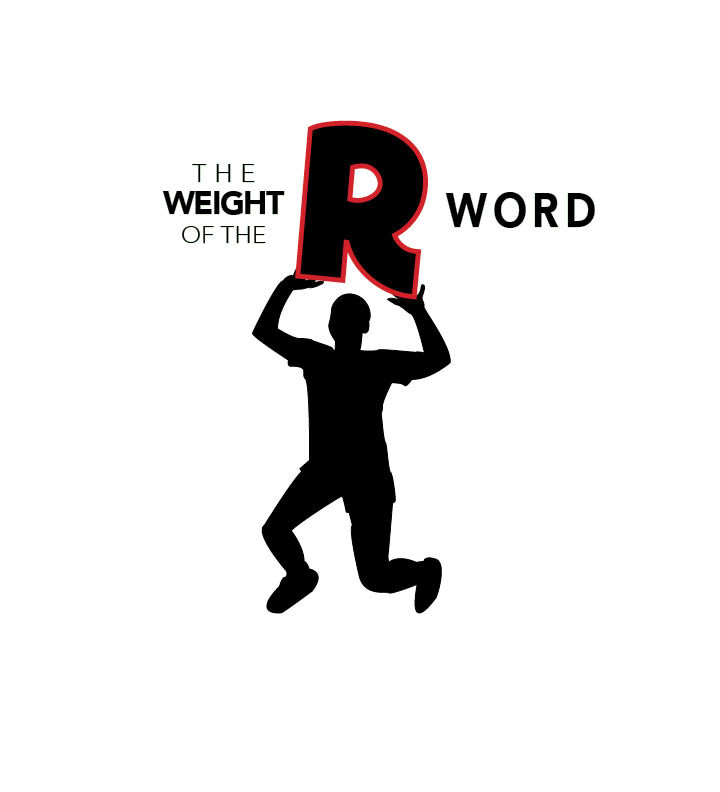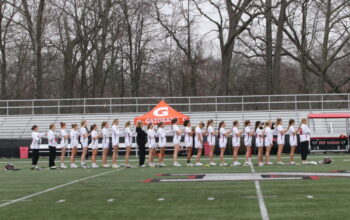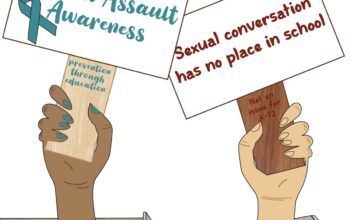Keira Cooney, Opinions Editor
@keiraccourant
The way people use language is constantly changing. Meanings shift and sometimes we realize that words once thought of as harmless are actually inappropriate or even offensive. As a generation intent on progressiveness, there’s been a growing conversation about ‘hate speech’ and how language reflects and perpetuates discrimination. Among those is the r-word.
The R-word has never really been a part of my vocabulary. My mother, being a teacher, has always emphasized the impact of language on others, so it was never used in my house. But that didn’t mean I never heard it. I’ve seen it used as everyday slang in movies, TV Shows, music, and even from friends. But I’ve never wanted to be the word police. They don’t mean it in a wrong way; they don’t mean to hurt people, so what good would it do to turn on my megaphone to preach to them?
As the world engages in an intense conversation about the importance of inclusion, programs like the Special Olympics and Best Buddies urge everyone to actively promote acceptance by ending the use of the R-word, which continues to degrade people with intellectual disabilities. While “mental retardation” was initially introduced as a medical term in 1961 for people with intellectual disabilities, in the decades since, the R-word has become a common insult used in everyday language. Yet so many people don’t see the real connotations behind what they say, because ‘it’s just a word.’
I admit I didn’t fully comprehend the intricacies of why it was such a harmful thing to say until this summer. I spent a lot of time babysitting for a 5-year-old family friend Luke. Luke can tell you the name of every type of dinosaur by its appearance, knows a startling amount about how trains work, and refuses to go anywhere without turning his socks inside out. He also has autism. Luke doesn’t like the feeling of wood chips on playgrounds, so when we went to East School, I noticed him repeatedly glancing at kids playing on the swings that were a sea of wood chips away. In conversations with Luke’s mom and listening to him talk about what he loved until I had to remind him to take a breath, it was clear that Luke was no different from any other kids that I babysat.
But when the neighborhood kids would ride their bikes, and I saw Luke standing by the window staring at them, tears of frustration in his eyes, and I couldn’t help but feel an enormous amount of anger. Anger at myself for inadvertently dismissing the feelings of the boy in front of me when I would give excuses against standing up for him when I heard the words that I knew alienated him from his peers. Anger that I was witnessing the tear-stained face behind the R-word, that people don’t see.
I couldn’t stomach the idea that this boy who loved trains and wore his socks inside out might ever think his existence boils down to one word.
When I asked him, Luke said he “doesn’t feel like he’s different from other kids.” But he was quick to add that his mom told him that even if he was, “there’s nothing wrong with being different.” And I think therein lies the problem at the heart of these debates. When people use the r-word in a derogatory way, whether the intent is a joke or not, it sends a message that people like Luke, are not a part of regular society and don’t deserve respect. That they’re wrong because of their differences.
Even though the government has made great strides in changing the way people with intellectual disabilities are treated, such as Rosa’s Law passed in 2009 – which replaced several instances of the phrase “mental retardation” in legal documents with “intellectual disability, it’s not enough to change the narrative about how society treats them. People have to take full accountability to stop saying “retard” and “retarded” as a joke, too. It’s about making the change yourself, telling your friends, and even your parents because it’s not just a word.




